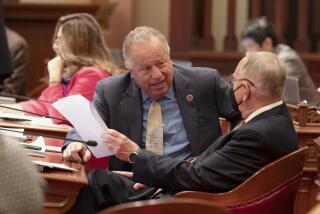401(k) clarity
Faced with an aging workforce, corporate America has tried to cut costs by making employees take responsibility for funding their retirement. Pensions, or âdefined benefitâ plans as theyâre known in the parlance of chief financial officers, are becoming a relic of the Industrial Age. In their place, employers are offering 401(k)s, or âdefined contributionâ plans. And increasingly, theyâre passing all the costs associated with those plans on to Jack and Jill Cubicle. Companies may kick in some dollars to match workersâ savings, but the burden is on employees to set aside part of their paycheck for their dotage.
Unfortunately, as this newspaper detailed in a series of articles in 2006, many employees arenât being told how much of their nest egg is being frittered away on fees paid to the companies managing their 401(k)s. Buried in the fine print of incomprehensible forms or not disclosed at all, those fees can consume thousands of dollars over time. To address that problem, several lawmakers have introduced bills that would require mutual funds, insurers and other providers of retirement plans to make complete disclosures of their fees to employers and workers. The House Education and Labor Committee gave its blessing last week to one by Chairman George Miller (D-Martinez), H.R. 3185, which would also require companies to offer workers the chance to invest at least part of their 401(k)s in a low-fee index fund to avoid potential liability for losses.
The measure has drawn stiff opposition from securities firms, which have complained that employers and workers would be confused and even deterred by a detailed disclosure of the various categories of fees. Some would prefer to reveal just the fee total. That would be a step forward, but supplying a detailed breakdown would also help employers and workers compare different providersâ charges for the same administrative services. Those comparisons could prod employees to demand better deals and give employers the leverage to negotiate them.
Millerâs proposal may be made moot by new regulations promised by the Labor Department and the Securities and Exchange Commission that would mandate more disclosure of investment fund fees. But Congress shouldnât trust the Bush administration or the SEC to act. Arrangements between employers and retirement plan providers that hide fees from those who pay them prevent market forces from holding down those charges. If employees are picking up the tab, they should have a range of options for their 401(k) contributions. And none of those options should be able to conceal the amount that would be burned off in fees.
More to Read
Inside the business of entertainment
The Wide Shot brings you news, analysis and insights on everything from streaming wars to production â and what it all means for the future.
You may occasionally receive promotional content from the Los Angeles Times.










